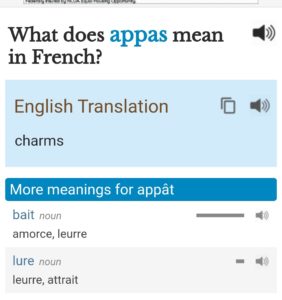So the 
Similar words
Surname Pappas
https://elkodaily.com/lifestyles/announcements/obituaries/lorraine-ella-saige-pappas/article_2d55fd80-cb0a-11e1-9680-001a4bcf887a.html
Elko is significant to my past.
Sappa is Pali for snake
Sappas-sappasito-seppa-
Zappa
Sappato
Zappatos-Shoe-Shuh-Shuhler
Zappato can also mean beetle crusher.
The first shoe was sagebrush bark.
https://en.wiktionary.org/wiki/sapa#Catalan
It is said that the wandering Jew who mocked Jesus was a shoemaker. Often elves are seen as shoemakers in European legend. To mock in Norse is Skoll.
https://www.sun-sentinel.com/florida-jewish-journal/opinion/fl-jj-storyteller-neile-story-behind-the-wandering-jew-20200616-jjpeckxywjdrtlu2fg7aucweha-story.html
https://www.surnamedb.com/Surname/Schumacher
A cordwainer (/ˈkɔːrdˌweɪnər/) is a shoemaker who makes new shoes from new leather. The cordwainer’s trade can be contrasted with the cobbler’s trade, according to a tradition in Britain that restricted cobblers to repairing shoes.[1] This usage distinction is not universally observed, as the word cobbler is widely used for tradespersons who make or repair shoes.[2][3][4]
The Oxford English Dictionary[5] says that the word cordwainer is archaic, “still used in the names of guilds, for example, the Cordwainers’ Company“; but its definition of cobbler mentions only mending,[5] reflecting the older distinction. Play 14 of the Chester Cycle was presented by the guild of corvisors or corvysors.[
The term cordwainer entered English as cordewaner(e), from the Anglo-Norman cordewaner (from Old French cordoanier, -ouanier, -uennier, etc.), and initially denoted a worker in cordwain or cordovan, the leather historically produced in Moorish Córdoba, Spain in the Middle Ages, as well as, more narrowly, a shoemaker.[8] The earliest attestation in English is a reference to “Randolf se cordewan[ere]”, ca. 1100.[1][8]
(Here we have another tie to Spain and possibly the Milesians)
Etymology
From Proto-Italic *korwos, from Proto-Indo-European *ḱorh₂wós, imitative of harsh sounds (compare Middle Irish crú, Lithuanian šárka (“magpie”), Serbo-Croatian svrȁka (“magpie”), Ancient Greek κόραξ (kórax), Old English hræfn), from *ḱer- (compare Latin crepō (“I creak, crack”), Sanskrit कृपते (kṛ́pate, “he laments, implores”)) + *-wós (whence Latin -vus).
Pronunciation
Noun
corvus m (genitive corvī); second declension
- A raven; a bird associated with prophecy and sacred to Apollo.
- (nautical) A gangplank, used in Roman naval combat for boarding enemy ships
So that brings us to the “raven mockers” in the PC Cast books (wandering jew-shoemaker-corvus guild-raven). However, PC Cast states she derived the raven mockers from Cherokee legends about feared witches and wizards. When I looked up the term, the Wikipedia meaning said the raven mocker robbed dying me of their life. I could see if it meant soul, rebirth or gifts. Vampyre have something similar with absorbing back the abilities of hybrids. However, it would make no sense to rob a dying man of life if their life was over.
And is it the Raven that these witches are mocking?
In an article I found, these Raven mockers were known as man-killers. This is a similar term to what Aphrodite is called.
https://www.jstor.org/stable/1185431
https://www.jstor.org/stable/26467046
It also brings us to Apollo-an enemy of Aphrodite.
Most Gods and Goddesses are of the crow, with two exceptions, Bran and Odin.

Recent Comments